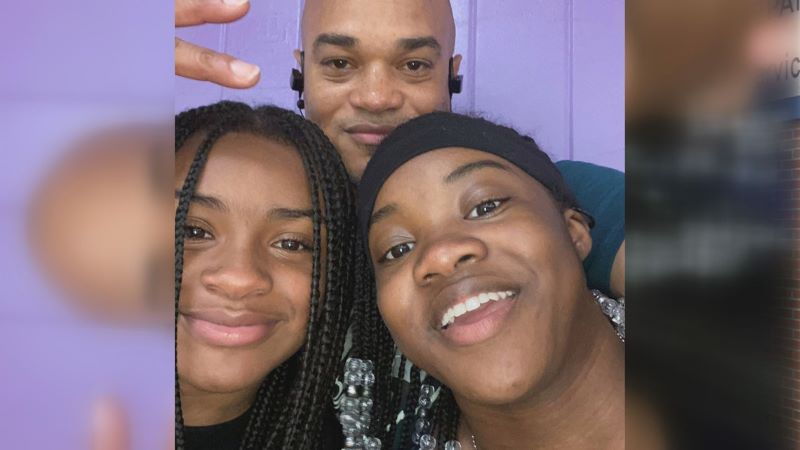Amirah Watson, a name that recently captivated audiences through the Netflix true-crime series Missing: Dead or Alive, has a profound story that blends the themes of child custody, abduction, and family reunification.
Born on June 5, 2009, to parents Tynesha Brooks and Mansoor Watson in North Carolina, her life took a turn when a seemingly routine visitation led to a harrowing experience that would change her life forever.
Background: Family Dynamics
Amirah’s family environment was complicated. After her parents separated when she was nine, her father, Mansoor Watson, gained primary custody of her. Tynesha, her mother, had visitation rights intended to foster a relationship with her daughter. However, the situation turned dire during one fateful visit.

Source: https://www.wltx.com/
The Abduction
On January 31, 2020, Mansoor delivered Amirah Watson to Tynesha for a scheduled visitation expected to last 72 hours. According to reports, Tynesha allegedly had no intention of returning her, and by February 2, Mansoor grew concerned when neither Tynesha nor her responded to his attempts to contact them.
Realizing something was amiss, Mansoor drove to Tynesha’s residence and found it empty, suggesting they had fled. Alarmed and desperate, he contacted the authorities. Subsequently, a police investigation was launched, leading to the issuance of an arrest warrant for Tynesha on charges of kidnapping.
The Search for Amirah
The following weeks were challenging for Mansoor as he worked closely with law enforcement to locate his daughter. The police were able to trace leads to Tynesha’s relatives but initially could not locate the pair.
In a twist that complicated public perception, Tynesha’s sister defended her, allegedly claiming that Mansoor had been abusive. Mansoor firmly denied these accusations, stating he had never harmed Tynesha.
After more than a month of searching, police finally received tips indicating that Amirah Watson and Tynesha were in Atlanta, Georgia. They acted swiftly, surrounding a relative’s house where the two were hiding.
On April 2, 2020, the authorities rescued her safely back to Mansoor. Tynesha was arrested and subsequently charged with kidnapping.
Return to Normalcy
Following the rescue, Amirah Watson was reunited with Mansoor. Despite the traumatic ordeal, she gradually began to readjust to her life. Reports indicate that Mansoor went on to remarry and developed a close bond with her stepmother, Sheena Watson, who played a significant role in the recovery.
Mansoor and his family kept a low profile post-crisis, maintaining their privacy while focusing on providing a stable home environment for her. When Missing: Dead or Alive aired in May 2023, it reportedly thrived, indicating a successful reintegration into family life.
Media Presence and Public Awareness
The airing of Amirah’s story on a prominent streaming platform has helped raise awareness regarding the complex issues related to child custody and parental abduction.
The docuseries investigates cases of missing children, shedding light on the emotional turmoil these children face during such distressing events and the associated challenges for the families involved.
Her situation serves as a crucial case study in understanding the legal and emotional ramifications of custody disputes and abductions. It also emphasizes the importance of advocating for children’s rights and safety.
Conclusion
The journey of Watson from abduction to recovery underscores a remarkable narrative about resilience and the enduring strength of family bonds. Her experience highlights children’s challenges during parental disputes and the critical role of advocacy and law enforcement in protecting children in equally precarious situations.
As she continues to grow and heal, her story serves as an inspiration and a reminder of the complexities surrounding familial relationships and children’s rights.
With an emphasis on media representation, Amirah Watson’s story encourages ongoing dialogue and support for families like hers, ensuring their voices are heard in the broader conversation about child welfare and safety.

Welcome to the world of Chef Gary! Meet Chef Gary, a culinary maestro whose journey from Indonesia to the United States has been nothing short of extraordinary. Immigrating in the early 2000s, Chef Gary began his culinary career as a Sushi Chef at renowned establishments such as Japonais Restaurant in Chicago, followed by stints at Benihana and Ginza in Indiana.
With a passion for perfection and a dedication to his craft, Chef Gary’s career blossomed as he made his mark in the Sunshine State, serving as the Head Sushi Chef at Modern Asian restaurants in Palm Beach. However, his two-year sojourn in New Delhi, India, shaped his culinary prowess, propelling him to the prestigious role of Executive Chef at Nehru Place – Benihana.
